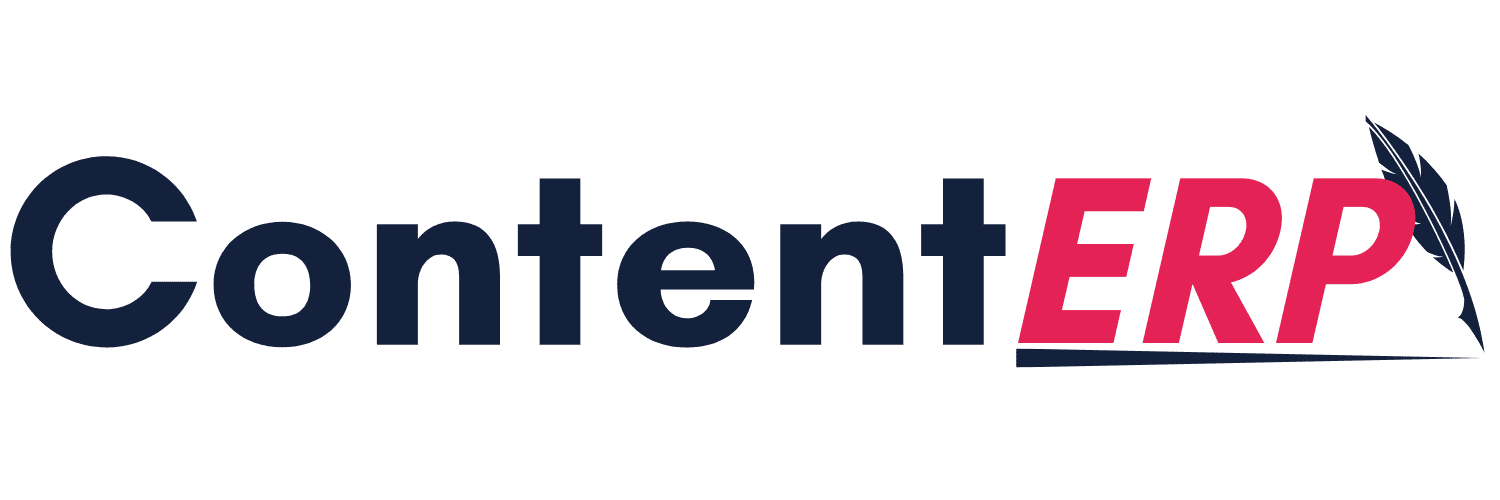The Future of Content Management: Why ContentERP Leads the Way
In a small town in the 1990s, there was a bakery that everyone loved. Not just for the warm bread and the delicate pastries, but because the owner, Mrs. Thompson, had a system. She knew the favorite orders of every customer, remembered special requests, and ensured that the bakery always had the freshest stock. But as her business grew, so did her headaches. Soon, she was overwhelmed by orders, inventory tracking, and customer preferences. Her once-perfect system was crumbling like day-old croissants.
Enter her tech-savvy nephew, who proposed a solution: a digital system to track everything in real time, manage customer preferences, and automate inventory orders. Mrs. Thompson, though initially skeptical, was amazed by how this simple change revolutionized her business. Her bakery went from local favorite to nationwide supplier, with everything running like clockwork.
This story echoes the transformation happening in content management today. As businesses expand their digital presence, managing vast amounts of content has become increasingly chaotic. What once worked for smaller websites or teams no longer holds up. The answer? ContentERP, a comprehensive platform that leads the way into the future of content management.
 1. A Centralized Web Content Management System
1. A Centralized Web Content Management System
If content is king, then a web content management system (WCMS) is the castle that keeps everything in order. ContentERP doesn’t just provide a castle; it gives you a kingdom with a single, centralized place to manage all your web content.
Think about it—multiple writers, designers, marketers, and editors, all working on different aspects of content. Without a unified system, it’s like trying to herd cats. Content gets lost, deadlines are missed, and quality slips. With ContentERP, all your content processes are housed under one roof, allowing seamless collaboration across teams.
ContentERP offers a user-friendly interface that lets content teams create, edit, publish, and track content all in one place. Like a well-organized pantry, everything is easy to find, and nothing goes stale. Whether you’re managing a corporate blog, an e-commerce site, or social media channels, ContentERP ensures everything runs smoothly.
2. Content Automation: Say Goodbye to Repetitive Tasks
Have you ever heard the saying, “Work smarter, not harder”? This phrase could be the tagline for ContentERP’s automation features. Repetitive tasks are the bane of any content creator’s existence—uploading content, setting publish dates, adding metadata, and performing SEO checks can feel like spinning wheels without making progress.
ContentERP swoops in like a superhero, automating these monotonous processes. Scheduling posts, formatting articles, and even keyword optimization are handled with just a few clicks. By reducing the manual workload, your content team can focus on the creative aspects of their job, like brainstorming that next viral campaign.
It’s like having a personal assistant for each team member, ready to handle the grunt work. In fact, using ContentERP can feel like moving from a bicycle to a high-speed train. You’ll still get where you’re going, but much faster, with less effort.
3. The Power of Real-Time Collaboration
Imagine you’re building a sandcastle at the beach. Now imagine ten other people are helping you build it—but no one is talking to each other. Someone is adding turrets while another person is digging a moat in the wrong place. The result? A lopsided castle that falls apart at the first wave.
In the content world, real-time collaboration is the key to building a sturdy digital presence. ContentERP shines here, offering a platform where teams can work together simultaneously, making real-time updates without stepping on each other’s toes. From writing to editing to designing, all changes happen in one space, ensuring that everyone is on the same page.
No more email threads with dozens of attachments, no more version-control nightmares—just seamless teamwork that feels like a well-rehearsed dance routine. Whether you’re in New York, London, or Tokyo, ContentERP keeps the rhythm steady.
4. Advanced Analytics: Measuring What Matters
There’s a famous business adage: “If you can’t measure it, you can’t improve it.” ContentERP doesn’t just allow you to track your content’s performance—it empowers you to dig deep into the data and make informed decisions that drive growth.
ContentERP offers advanced analytics that track every piece of content, from blog posts to social media updates. You’ll know exactly how your audience interacts with your content, where they’re coming from, and how they’re engaging with your site. Armed with this data, you can refine your content strategy, focus on what works, and ditch what doesn’t.
Think of it as a treasure map, guiding you to the gold in your content marketing efforts. Every data point is like an X on the map, showing you where to dig deeper. With ContentERP’s analytics, content decisions become less of a guessing game and more of a science.
5. SEO Integration: Small SEO Tools with Big Impact
Content without visibility is like a billboard in the desert—no one sees it. That’s where SEO comes into play. But, let’s be honest, SEO can feel like a never-ending checklist of tweaks, keywords, and backend adjustments. Enter ContentERP’s integrated SEO tools, designed to simplify the process and ensure your content reaches its audience.
From on-page SEO optimization to keyword suggestions, ContentERP has your SEO needs covered. Imagine having a seasoned SEO expert in your corner, ready to guide you through each step. With small SEO tools built into the system, your content will rise through search engine rankings like a hot air balloon on a summer’s day.
The beauty of ContentERP’s SEO integration is that it’s intuitive. You don’t need to be an SEO guru to get it right—the platform guides you along the way, ensuring your content is as search-friendly as it is engaging.
6. Future-Proofing Your Content Strategy
The world of content management is evolving faster than ever. As new technologies emerge and audience expectations shift, businesses need to stay ahead of the curve. ContentERP is designed with the future in mind, continually updating and improving its features to meet the changing demands of the digital landscape.
Think of ContentERP as the Swiss Army knife of content management—versatile, reliable, and equipped for any challenge. Whether it’s incorporating artificial intelligence, voice search optimization, or dynamic content, ContentERP is always one step ahead.
In a rapidly shifting world, having a platform that grows with you is essential. ContentERP ensures that your content strategy is not just relevant today, but ready for whatever the future holds.
7. Security and Reliability: Peace of Mind for Content Teams
In the digital age, content is valuable—so valuable, in fact, that it’s often targeted by hackers and malicious software. ContentERP offers robust security features that ensure your content is safe, from draft to publication.
With built-in security protocols, automatic backups, and permission controls, ContentERP acts like a digital security guard, protecting your content at all times. You can rest easy knowing that your content—and your team’s hard work—is safe from potential threats.
It’s like having an invisible shield around your content. You don’t see it, but it’s always there, providing peace of mind.
ContentERP—The Future is Now
The future of content management is clear, and it looks a lot like ContentERP. With features that streamline workflows, foster real-time collaboration, and ensure security, ContentERP leads the way in how businesses will manage their content strategies for years to come.
As content continues to evolve, one thing remains constant: the need for effective, efficient, and user-friendly tools. ContentERP checks all the boxes, ensuring your content team can focus on what they do best—creating exceptional content.
But here’s a question to leave you pondering: if ContentERP makes content management this easy, what will you do with all the extra time? It’s a riddle that, perhaps, only time will answer.
